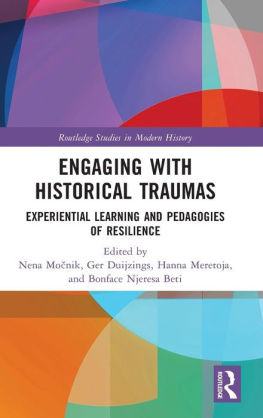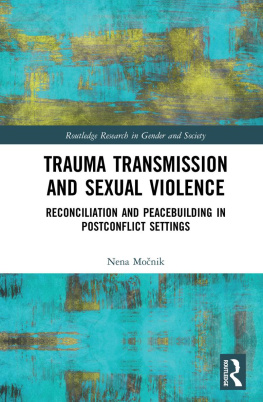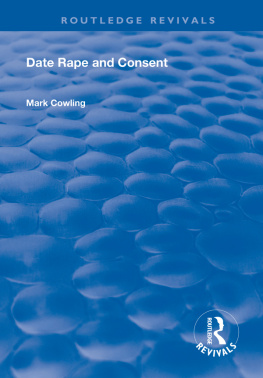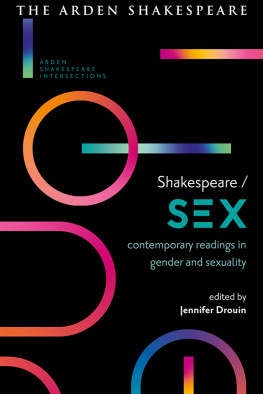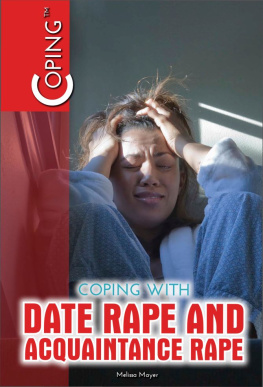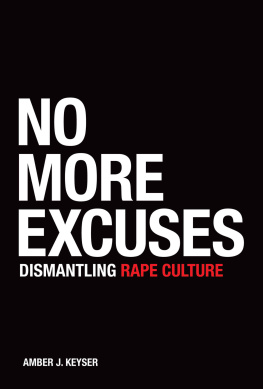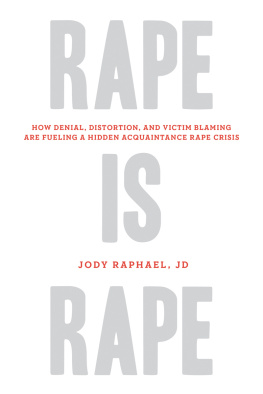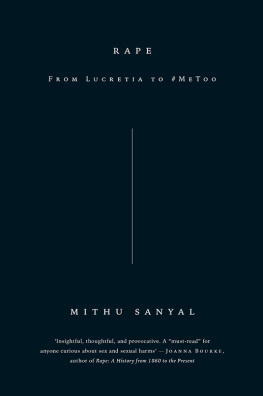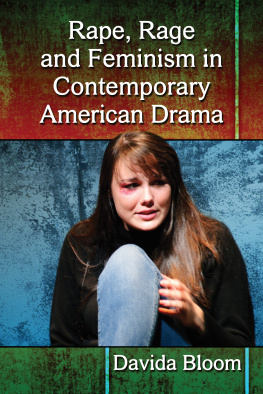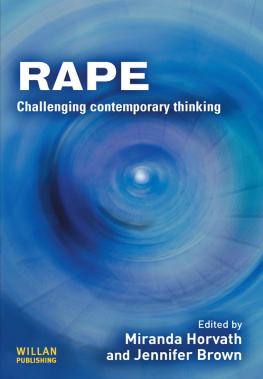
Sexuality after War Rape
This book examines the potential impact of rape survivors traumatic experiences in post-conflict zones. With specific attention given to the experiences of women who were sexually abused during the breakup of the former Yugoslavia, it addresses the sexuality of survivors, which has so far been inadequately researched, and challenges the stereotypical and victimized images and narrations that have so far prevailed in academic and public discourse about women survivors while exploring the effects of those narratives on the political, social and economic status of the survivors themselves.
Methodologically innovative, the book questions the processes of re-victimization that can follow fieldwork with survivors and introduces the theoretical and practical foundations of applied drama and community theater as a research approach in this field, revealing its potential as a means of expressing a range of ethnographic, anthropological and case-study research findings. Based on the narratives of advocates, scholars and different social stakeholders, together with new drama-based methodologies employed directly with survivors, Sexuality after War Rape: From Narrative to Embodied Research offers a sensitive and ethically-responsible research approach to contesting assumptions about the sexualities of survivors of sexual violence and revealing the emancipatory potential of testifying.
This book will appeal to scholars of sociology and gender studies, victimology and sexuality.
Nena Monik holds a PhD in Balkan Studies (University of Ljubljana, Slovenia). She is a postdoctoral researcher at Turku Institute for Advanced Studies and researcher at SELMA, Centre for the Study of Storytelling, Experientiality and Memory, Turku, Finland.
Routledge Research in Gender and Society
www.routledge.com/sociology/series/SE0271
56Black Women, Agency, and the New Black Feminism
Maria del Guadalupe Davidson
57Marginalized Masculinities
Contexts, Continuities and Change
Edited by Chris Haywood and Thomas Johansson
58Equality Struggles
Womens Movements, Neoliberal Markets and State Political Agendas in Scandinavia
Mia Liinason
59Gender, Subjectivity and Cultural Work
Classical Music Profession
Christina Scharff
60The Conundrum of Masculinity
Hegemony, Homosociality, Homophobia and Heteronormativity
Chris Haywood, Thomas Johansson, Nils Hammarn, Marcus Herz and Andreas Ottemo
61Body Image as an Everyday Problematic
Looking Good
Flix Daz Martnez
62Women, Horseracing and Gender
Becoming One of the Lads
Deborah Butler
63Sexuality after War Rape
From Narrative to Embodied Research
Nena Monik
Sexuality after War Rape
From Narrative to Embodied Research
Nena Monik
First published 2018
by Routledge
2 Park Square, Milton Park, Abingdon, Oxon OX14 4RN
and by Routledge
711 Third Avenue, New York, NY 10017
Routledge is an imprint of the Taylor & Francis Group, an informa business
2018 Nena Monik
The right of Nena Monik to be identified as author of this work has been asserted by her in accordance with sections 77 and 78 of the Copyright, Designs and Patents Act 1988.
All rights reserved. No part of this book may be reprinted or reproduced or utilised in any form or by any electronic, mechanical, or other means, now known or hereafter invented, including photocopying and recording, or in any information storage or retrieval system, without permission in writing from the publishers.
Trademark notice: Product or corporate names may be trademarks or registered trademarks, and are used only for identification and explanation without intent to infringe.
British Library Cataloguing-in-Publication Data
A catalogue record for this book is available from the British Library
Library of Congress Cataloging-in-Publication Data
Names: Mocnik, Nena, author.
Title: Sexuality after war rape : from narrative to embodied
research / Nena Mocnik.
Description: Abingdon, Oxon ; New York, NY : Routledge, 2017. |
Series: Routledge research in gender and society ; 63 | Includes
bibliographical references and index.
Identifiers: LCCN 2017015150 | ISBN 9781138293694 (hbk) |
ISBN 9781315231969 (ebk)
Subjects: LCSH: Rape victimsBosnia and Herzegovina. |
Yugoslav War, 19911995Atrocities. | Rape trauma syndrome
Bosnia and Herzegovinia. | SexBosnia and Herzegovinia. |
Women and warBosnia and HerzegoviniaPsychological aspects.
Classification: LCC HV6569.B54 M63 2017 | DDC 362.88dc23
LC record available at https://lccn.loc.gov/2017015150
ISBN: 978-1-138-29369-4 (hbk)
ISBN: 978-1-315-23196-9 (ebk)
Typeset in Times New Roman
by Apex CoVantage, LLC
In early March 2011, I was about to prepare a theater performance covering the topic of war and gender. I started to learn about mass rapes and sexual violence happening during the war in Bosnia-Herzegovina.1 After my initial shock at being for the first time encountered with the extreme portrayals of sexual violence and all different imaginaries around rapes used in war, I got in contact with two groups and decided to meet with them. Although being overwhelmed by everything I learned from books, and having an already very precise image of how a rape survivor should look or behave, I still was not exactly clear how to make the first contact. My main concerns were related to my own attitudes and behavior, too: how to approach someone, knowing the story behind this woman? Should I paternalize or pity her, or just empathize, or perhaps congratulate her because she survived and she keeps fighting? And what about afterwards when I will be equipped with all these firsthand stories, how I am going to write about this, how will I frame the stories, to stay honest but also fair toward survivors? Am I going to be too emotional in my narrative? Emphatic? Or maybe pathetic?
Because my initial plan was to search for the materials for the performance, I decided to organize a drama-based workshop, where instead of sharing the testimonies we would rather reflect the existing narratives by playing with images, representations and reenactments of real-life events. Soon, I became caught up with my own imagined stereotypes and perceptions of the war rape victims sexualities, when I did not know how to react to the participants sexual fantasies expressed in their body movements and gestures, images and acts. As much as I was surprised at the moment of experiencing it, I had to admit my contaminated images of war rape survivors as traumatized, depressed and negative individuals. A similar story happened to me, when one of the participants of the workshop in Sarajevo started to share with me very intimate stories about her desires and sexual experiences before the war; there was no notable shame, guilt or traumatic dimension throughout her monologue. It was, on the contrary, full of passion; her memories were expressed in a nostalgic way and she obviously enjoyed sharing them with me. It was only I that was full of stereotypical images and expectations of how her perspective on sexuality should be, with regards to her abusive war experience. But where did I get this knowledge? Do we, as researchers, contribute to building those images or to breaking them down? This is the reason why this study aims to analyze the past representations and compare them with my own fieldwork: researching rapes has become highly politicized, and gender-based frames do not affect the women survivors anymore today, but they do have more far-reaching objectives, aiming toward a change of the broader issue of the culture of rape.




